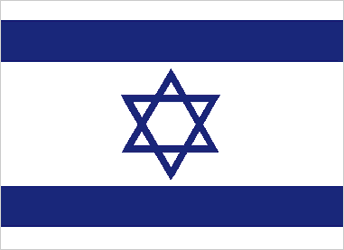Israel allows lull in Gaza war as truce idea gains impetus
 Tel Aviv/Jerusalem - Israel welcomed Wednesday a Franco- Egyptian proposal to end 13 days of fighting between the Israeli military and Palestinian militants in the Gaza Strip, which has left hundreds dead and thousands more injured.
Tel Aviv/Jerusalem - Israel welcomed Wednesday a Franco- Egyptian proposal to end 13 days of fighting between the Israeli military and Palestinian militants in the Gaza Strip, which has left hundreds dead and thousands more injured.
Israel also instituted a three-hour lull in the fighting in the salient, to allow Palestinians living there to stock up on necessities.
"Israel welcomes the (Franco-Egyptian) initiative and is working on it and is interested in its success," government spokesman Mark Regev said.
He said Israel insisted that there be a halt to all rockets launched from the Gaza Strip toward Israel, and an absolute weapons embargo be imposed on the Islamist movement.
Hamas politburo member Mussa Abu Marzuk told al-Arabiya television that the organization would "respect and consider any proposal that calls for ending the (Israeli) aggression and for the withdrawal of the (Israeli) army."
He said Hamas was also opposed to any possibility of international troops coming the Gaza Strip to reinforce any possible truce because "Gaza is a part of the Palestinian land."
The three-hour lull went into effect at 1 pm (1100 GMT). An Israeli military spokeswoman said she did not know of any rockets fired during the ceasefire.
Defence Ministry spokesman Peter Lerner said Israel would have a three-hour pause in the fighting every second day.
He said 80 trucks were carrying supplies into the Strip, and around 400,000 litres of fuel was being transferred via the Nahal Oz fuel terminal on the Israel-Gaza border. The terminal would remain open so long as there were no attacks on it by militants, he added.
A Gaza resident said the city came back to life during the lull, with grocery stores opening and locals buying what goods they could.
The lull was instituted after acting Prime Minister Ehud Olmert ordered a humanitarian corridor be set up in the Strip to allow necessary provisions to reach Palestinians who have been cut off by the fierce fighting.
The Israeli cabinet meanwhile met in Tel Aviv to hear a situation report on the Gaza fighting, and to decide whether Israel should intensify its operation and send troops into densely-populated areas of the Gaza Strip, or whether to accept a ceasefire proposed Tuesday night by Egyptian President Hosny Mubarak and French President Nicolas Sarkozy.
The only statement issued after the meeting contained a few terse words saying Israel looked "favourably" on the ceasefire proposal, and made no mention of any decision regarding the future of the Israeli ground assault.
Olmert told reporters Tuesday that Israel would not stop its Gaza offensive until rocket attacks on southern Israel from the Gaza Strip were halted, and unless "the weapons smuggling from the Sinai to Gaza stop completely."
The fighting in the enclave, meanwhile continued Wednesday, with the Israel Air Force, navy and artillery striking more than 40 targets since midnight, an Israeli military spokesman said.
Targets included rocket launching sites, as well as tunnels and bunkers constructed between houses in built-up areas, the spokesman said.
Militants, for their part, fired at least 15 rockets at southern Israel.
Health officials in the Gaza Strip said that 700 Palestinians have been killed by Israeli attacks since the offensive began, and 3100 wounded.
Twenty-four more deaths were recorded Wednesday, including some who died of wounds, others who were killed directly, and eight bodies discovered in the rubble of bombed buildings.
A United Nations agency said that some 50 per cent of Palestinian casualties were women and children.
In Israel, three civilians and one soldier have been killed by Palestinian rockets fired from the Strip and dozens wounded. Six soldiers have been killed in fighting in the Strip, and around 80 wounded.
Israel began bombing the Strip on December 27, in response to massive rocket barrages from the salient on its southern towns and villages following the end of a truce on December 19.
On Saturday evening the army was ordered into the Strip, which has since seen heavy ground fighting. (dpa)